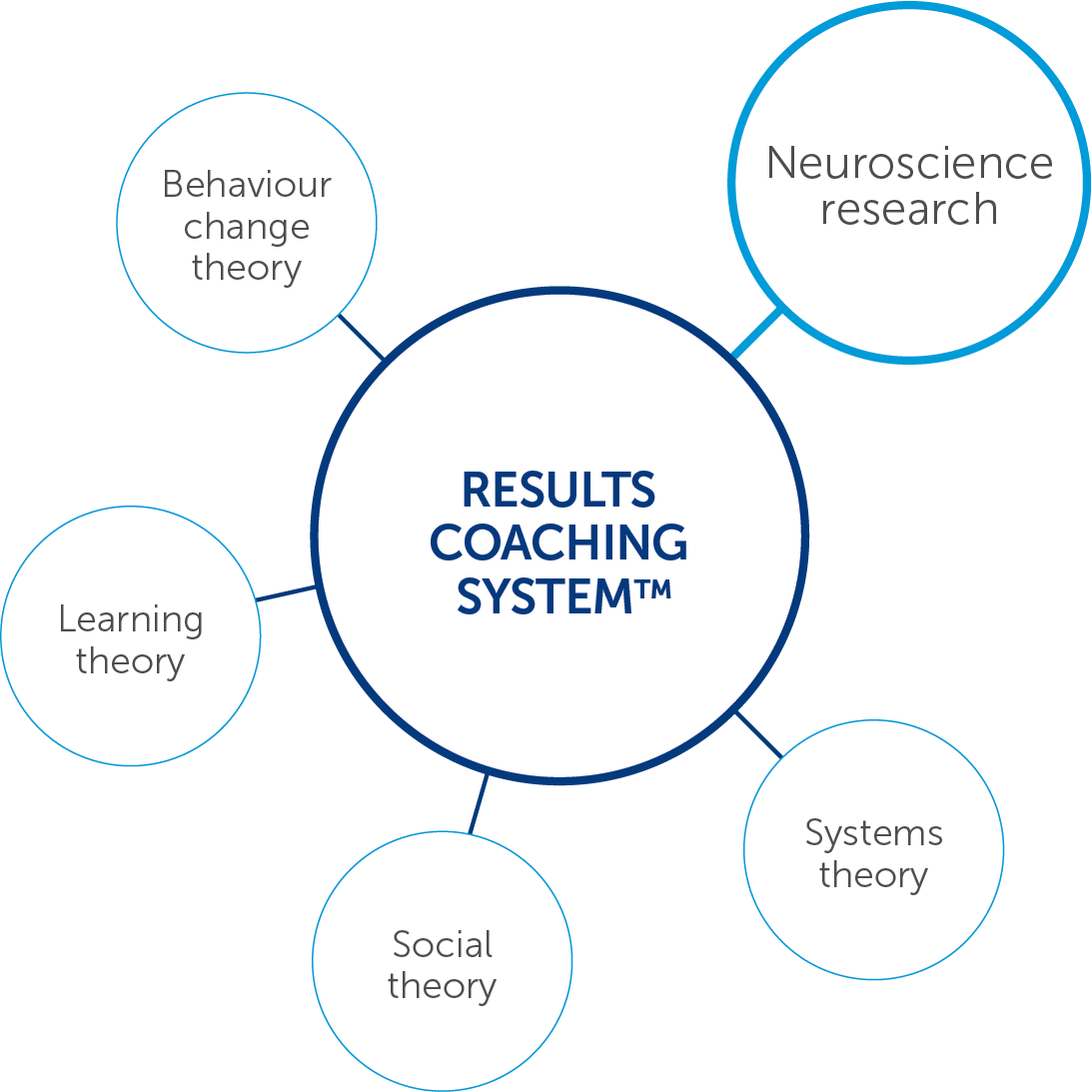Our Brain-Based Approach To Coaching
Facilitate positive change by improving the quality of thinking
Results Coaching System
Designed by David Rock, the Results Coaching model is designed for coaching high functioning people who want help structuring and challenging their thinking.
The approach draws from contemporary neuroscience, along with research from positive psychology, adult learning theory, as well as systems and change theories. This method is ideal for coaching rational, business-focused professionals.

Underlying Principles of Results Coaching
|
|
Self-directed LearningWe believe that coachees need to be in the driver’s seat of the learning process. However this does not mean a coachee always has all the answers, sometimes a coach provides other useful perspectives or triggers new thinking. The coach’s role is to support good process in coaching, the coachee’s role is to do the hard thinking. |
|
Solutions FocusResearch indicates that to focus intensely on problems can be counterproductive. Negative hard wiring in the brain is reactivated and strengthened, thereby reducing the ability to see new ways of thinking. The brain creates new circuits based on where attention is focused, so we focus closely on solutions rather than problems. |
|
Positive FeedbackAcknowledgement of progress is the lifeblood of effective coaching and our coaches are skilled in providing this positive reinforcement and helping each coachee to develop the ability to build confidence through self acknowledgement. |
|
Stretch ResultsCoaching is focused on helping each coachee reach challenging and motivating goals. The coach’s role is to stretch the individual to move rapidly and effectively to the achievement of the defined goal, identifying and finding ways around blocks along the way. |
|
StructureCoaching is much easier to do if there is a clearly defined structure behind it. It supports the coach and coachee throughout the process, so that both know exactly what is expected of them at each step of the way. |
Application of Results Coaching
Workplace Coaching
Executive Coaching
Business Coaching
Personal/Life Coaching
Workplace Coaching
Designed to get managers and leaders coaching their internal teams; working with either their direct reports or with staff across an organisation. Coaches in the workplace bring out the best in their teams by applying coaching skills every day
Executive Coaching
A one-to-one, mutually designed relationship between an executive coach and a key executive contributor accountable for highly complex decisions that affect the organisation as a whole. The focus of coaching is generally on organisational performance and/or development. It may also include a personal focus as well.
Business Coaching
Working with owners or key management of various size enterprises, focusing on the company’s development as well as the client as an individual. Business coaches work with their clients to help them excel with their business
Personal/Life Coaching
Working with the client within the context of their whole life, and may work on a variety of areas depending on where the client wants to focus. They may focus together to create positive change for the client from a health, career, financial, relationship or creativity perspective.

